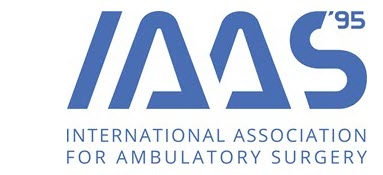CAPACITY BUILDING:
The IAAS organizes training workshops and professional exchange visits for health professionals, health managers and national policy makers with the aim to provide evidence-based solutions that can be adapted to the different local situations. These provide opportunities to learn first hand the advantages of day surgery and exchange of good practice.
STIMULATION AND DISSEMINATION OF RESEARCH ACTIVITIES AND INFORMATION RELATED TO AMBULATORY SURGERY:
This programme line targets health professionals, clinical researchers, patient associations (patients), university researchers interested on ambulatory surgery services. The IAAS publishes the peer reviewed international journal AMBULATORY SURGERY and a newsletter in electronic format, organizes a biennial international congress, coordinates with academia in developing and promoting joint research proposals and maintains a website that also provides links to international published guidelines and protocols.
NETWORKING, BENCHMARKING AND ADVOCATING:
The IAAS encourages networking among members by providing opportunities at general assembly meetings, international congresses and through the newsletter. The IAAS regularly performs an international surgical statistics survey of DS whose data are used as evidence to influence policy decisions and to target IAAS support. This program line also involves joint initiatives with OECD as well as public events targeting policy makers, patient associations and health managers aimed at sharing information on recent developments in ambulatory surgery. This line will be strengthened during this programming cycle and it will include a European congress on ”Ambulatory Surgery and the Hospital of the Future”, development of an on line benchmarking tool and publication of a policy brief on ”Ambulatory Surgery in Europe versus USA and Australia” intended for policy makers and decision makers in health care.
The IAAS activities are well aligned to the political needs of countries and especially the needs of health services across member countries. The current context of a fragile economic recovery limiting the resources available for health care strengthens this position.
DS represents a sustainable and smart model of care that also provides high quality services to patients and so is also well aligned to patient needs – it has the ability to reduce inequality of services provided. De novo development of DS or large increases in DS is only feasible with considerable support to managers, doctors, surgeons, nurses and administrative staff. The IAAS Training programme aims to build the culture needed within a country to move this forward.
